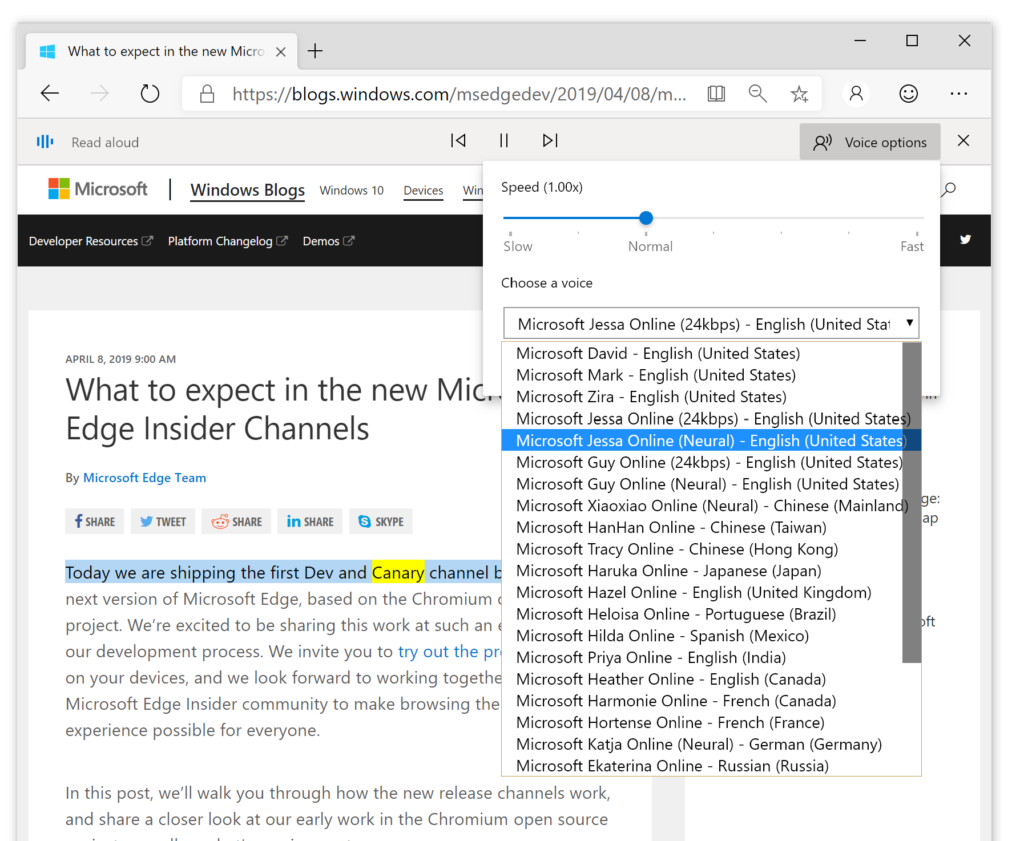Bringing cloud powered voices to Microsoft Edge Insiders
A common theme that we heard from Read Aloud feedback in the current version of Microsoft Edge was that the default speaking voices sounded robotic and unnatural. People also told us how time consuming it was to install different language packs so that they could read text in other languages. We have made this experience better with the arrival of cloud powered speaking voices in the preview builds of Microsoft Edge.
What are cloud powered voices?
Powered by Microsoft Cognitive Services, these new voices come in two different styles and can be distinguished from other voices you may have installed on your computer by the fact that they have “Microsoft <voiceName> Online” in their names:
- Neural voices – Powered by deep neural networks, these voices are the most natural sounding voices available today.
- Standard voices – These voices are the standard online voices offered by Microsoft Cognitive Services. Voices with “24kbps” in their title will sound clearer compared to other standard voices due to their improved audio bitrate.
Using cloud powered voices
The easiest way to try out the new array of cloud-powered voices is to use the Read Aloud feature. To do this, navigate to a website, select some text, right click it, and select “Read aloud selection”. This will start Read Aloud and will also open the Read Aloud menu bar which lets you pick different voices and adjust reading speed by clicking on the “Voice options” button:
It’s also worth noting that these voices have been exposed to developers through the JavaScript SpeechSynthesis API. This means that any web-based text to speech application can leverage them to create more configurable and human sounding experiences in the new version of Microsoft Edge!
Let us know what you think
Which voice is your favorite? Do you have any other suggestions for how we could make this experience even better? If you have any feedback for us, please send it our way using the “smiley face” in the top right corner of the browser.

We’re excited to hear what you think!
– Scott Low, Program Manager, Microsoft Edge Web Platform

